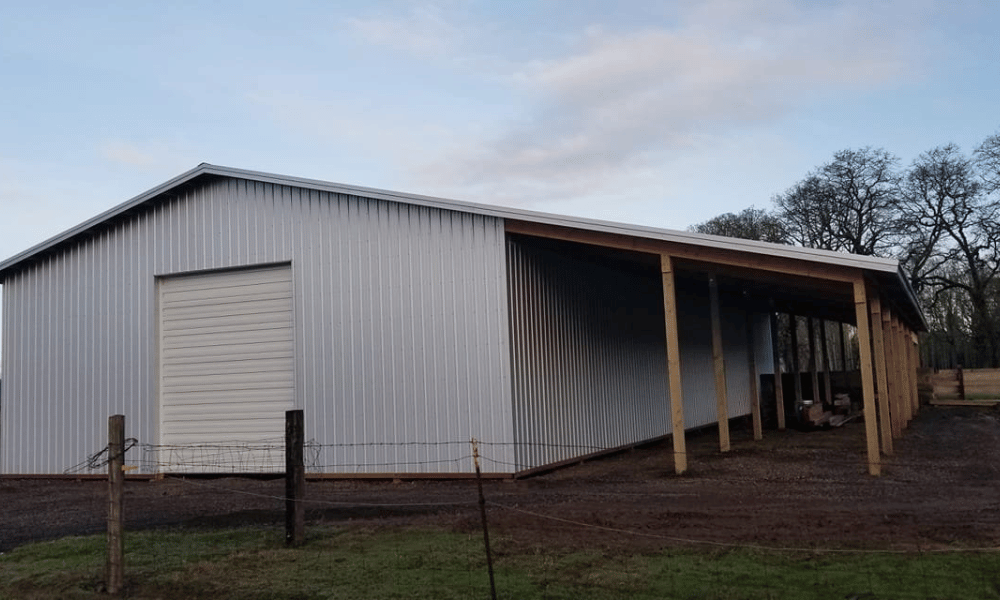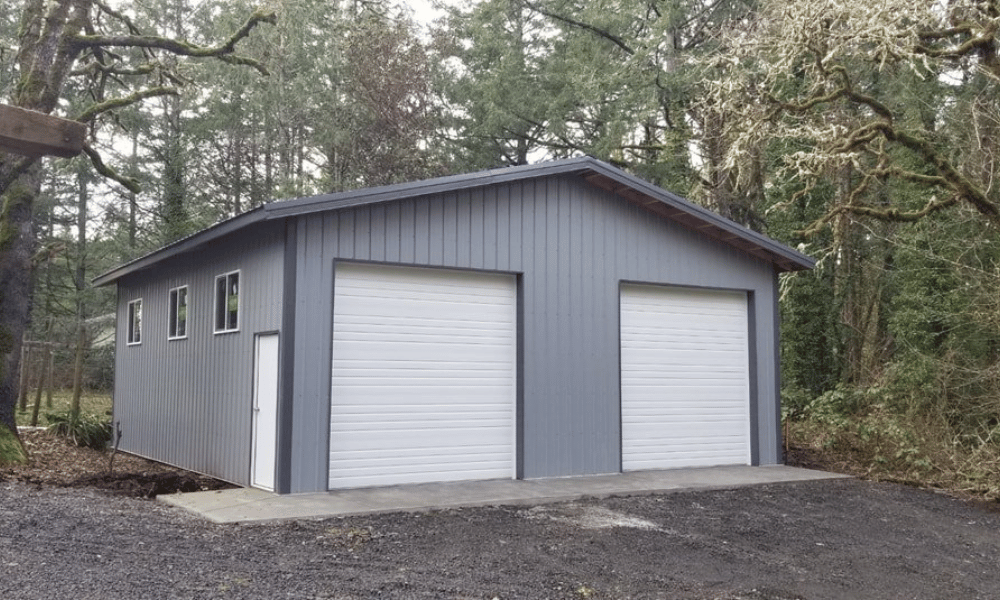When it comes to constructing a building that meets a variety of needs, pole barns have emerged as a popular solution. Their versatility, affordability, and practicality make them ideal for everything from agricultural use to personal workshops. But why should you consider building a pole barn? In this comprehensive guide, we’ll explore the myriad benefits of constructing a pole barn and how it can fulfill your dreams.
What is a Pole Barn?
Before diving into the benefits, let’s clarify what a pole barn actually is. A pole barn is a simple structure built using poles or posts anchored in the ground, which support the roof. Typically constructed with metal siding or wood, these barns are known for their straightforward design and functionality.
Key Features of Pole Barns
Post Frame Construction: This technique uses vertical posts set in concrete to create the barn's framework. Versatile Materials: You can choose from various materials for walls and roofing—metal, wood, or even vinyl. Open Floor Plans: The lack of interior load-bearing walls allows for customizable layouts. Energy Efficiency: With proper insulation and ventilation, they can be quite energy-efficient.Now that we've established what a pole barn is, let's delve into its benefits!
Building Dreams: 10 Benefits of Constructing a Pole Barn
1. Cost-Effective Solution for Various Needs
One of the most significant advantages of constructing a pole barn is its affordability compared to traditional structures.
Why Are Pole Barns Cheaper?
- Less Material Required: Because of their design, you need fewer materials. Reduced Labor Costs: Quicker construction means lower labor expenses. Lower Maintenance Costs: Durable materials often require less upkeep.
2. Versatility in Use Cases
Pole barns aren't just http://chancejihc412.raidersfanteamshop.com/the-art-of-transformation-converting-your-pole-barn-for-events for storing farm equipment; their versatility makes them suitable for various applications.
Common Uses Include:
- Agricultural storage Workshops Garages Event spaces Horse stables
3. Quick and Easy Construction Process
Time is money, right? When you opt for a pole barn, you’ll find that construction typically takes much less time than traditional buildings.
Why Is It Faster?
- Simple construction methods allow for quicker assembly. Fewer inspections are needed during the building process.
4. Customizable Designs and Layouts
Ever dreamt about having complete control over your building’s design? With pole barns, customization is at your fingertips.
Design Options Available:
- Size variations Roof styles (gable, gambrel) Interior layouts tailored to your needs
5. Strong Structural Integrity
Despite their seemingly simple design, pole barns boast impressive structural strength.
What Makes Them Strong?
- Deep-set posts provide stability against wind and snow loads. Materials like steel add durability without excessive weight.
6. Excellent Energy Efficiency
Want to save some bucks on energy bills? A well-insulated pole barn can help!
How Does It Work?
- Insulation options like spray foam or fiberglass keep temperatures stable. Proper ventilation reduces humidity levels.
7. Low Maintenance Requirements
Who doesn’t love low-maintenance options? Pole barns are designed to withstand the elements with minimal upkeep.
Maintenance Tips:
Regularly check for leaks or any wear-and-tear on roofing. Inspect and clean gutters to prevent water damage. Touch up paint as necessary to protect against rust or decay.8. Eco-Friendly Building Option
Sustainability matters more than ever! Pole barns can be an eco-friendly alternative depending on your choice of materials.
Eco-Friendly Practices Include:
- Using reclaimed wood Installing solar panels Implementing rainwater collection systems
9. Enhanced Property Value
Thinking about resale value? Investing in a well-built pole barn can significantly increase your property’s worth!
Factors That Contribute to Increased Value:
Functional space attracts buyers looking for multi-use properties. Quality construction ensures longevity and appeal.10. Community Building Opportunities
A pole barn can serve as more than just storage; it can become a community hub!
Community Activities Could Include:
Workshops/classes Local events/fairs Social gatheringsFAQs About Building Dreams: 10 Benefits of Constructing a Pole Barn
1. What is the average cost of building a pole barn?
The cost varies widely based on size and materials but typically ranges from $15 to $50 per square foot.
2. How long does it take to build a pole barn?
Construction time usually spans between one week to several weeks depending on size and complexity.
3. Can I build my own pole barn?
Absolutely! Many DIY enthusiasts successfully construct their own pole barns with some planning and effort.
4. Do I need permits to build a pole barn?
Yes, local regulations often require permits; always check with your local zoning office before starting construction!


5. Are there financing options available for building a pole barn?
Many financial institutions offer loans specifically tailored for agricultural buildings or home improvement projects like this one.
6. What maintenance does a pole barn require?
Regular inspections, cleaning gutters, checking roofs for leaks—all contribute to keeping your structure in good shape!
Conclusion
In summary, constructing a pole barn offers numerous benefits that cater to diverse needs—from cost-effectiveness and speed of construction to versatility and low maintenance requirements—it’s hard not to see why so many people are opting for this type of building! Whether you're looking at it from an agricultural standpoint or simply want extra space at home, understanding "Building Dreams: 10 Benefits of Constructing a Pole Barn" will undoubtedly help you make informed decisions as you embark on this exciting journey toward creating your ideal space!
So why wait? Start dreaming today—your perfect pole barn could be just around the corner!